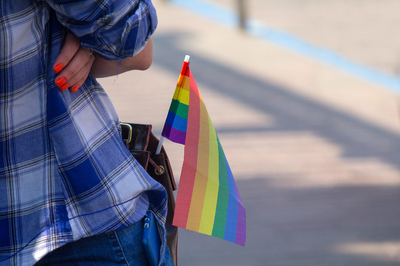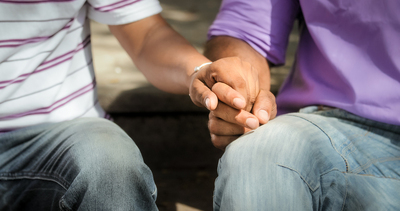
Coming out can be freeing…and fearful.
The Coming Out Process
The University of Washington defines coming out as “a process of understanding, accepting, and valuing your sexual orientation/identity.” The operative word in that definition is “process.”
While the concept of “coming out” may seem simple (and in some cases may be sudden), it can also be a complex, difficult, and ongoing state—especially when you factor in the many possible stages. Oftentimes, gay, lesbian, bisexual, and transgender people must first come out to themselves before they can even progress to telling others. This can be a freeing process, but it can also be a fearful one—particularly when acceptance is on the line.
“Our society strongly enforces codes of behavior regarding sexual orientation and gender identity, and most people receive the message that they must be heterosexual and act according to society’s definition of their gender. For gay, lesbian, and bisexual persons, there may be a sense of being different or of not fitting into the roles expected of you by your family, friends, workplace, or greater society. Coming out involves facing societal responses and attitudes toward LGBTQ people. You may feel ashamed, isolated, and afraid,” continues the University of Washington.
Did we happen to mention the fact that words like “ashamed,” “isolated,” and “afraid” are also commonly used among addicts? It is not a coincidence that LGBT community members are at increased risk of addiction and substance abuse. In fact, as many as 30 percent of LGBT individuals may have substance abuse disorders.
Why Choosing the Right Addiction Treatment Matters
Given these dual challenges, it is hardly a surprise that the Substance Abuse and Mental Health Services Administration (SAMHSA) has deemed that sexual minorities are more likely to need substance abuse treatment than sexual majorities. Yet, the fact that they are sexual minorities may actually prevent them from seeking treatment due to negative perceptions about providers as well as the poor experiences of their peers, according to Social Work Today. The takeaway? Treatment centers that distinguish themselves as LGBT friendly may be more appealing to members of the LGBT community.
It is not just about what is appealing—it is also about what is effective, and experts agree that the best substance abuse programs are the ones that customize treatment plans to acknowledge the stage each client is in when it comes to coming out.

Many members of the LGBT community may have inadequate support systems, which can be an impediment to recovery.
“To be most helpful, counselors need to recognize a client’s comfort level with his or her feelings about his or her sexual identity and treat the client accordingly. A client who is uncomfortable with his or her sexual identity may not want to attend LGBT Alcoholics Anonymous (AA) meetings or discuss feelings about sexual orientation. However, these meetings could be helpful for a client who is more comfortable with his or her sexual identity. A provider may do harm if he or she forces openness by questioning a client’s sexuality before the client is ready. As with many decisions, a provider can best serve his or her clients by assuming little and gauging the best form of care for reducing the client’s fears and anxiety,” says the SAMHSA report entitled “A Provider’s Introduction to Substance Abuse Treatment for Lesbian, Gay, Bisexual, and Transgender Individuals.”
Furthermore, family dynamics and clinical issues unique to members of the LGBT community must also be acknowledged and addressed in a targeted way in addiction treatment in order to best facilitate recovery.
According to the Human Rights Campaign, “coming out and living openly aren’t something you do once, or even for one year. It’s a journey that we make every single day of our lives. Every coming out experience is unique and must be navigated in the way most comfortable for the individual.” Substance abuse programs that holistically integrate this perspective into their treatment approaches can offer the best outcomes for LGBT addicts and the people who love them.
We’re Here to Help
Contact us at Harris House today to learn more about our individualized substance abuse treatment programs for LGBT community members.







